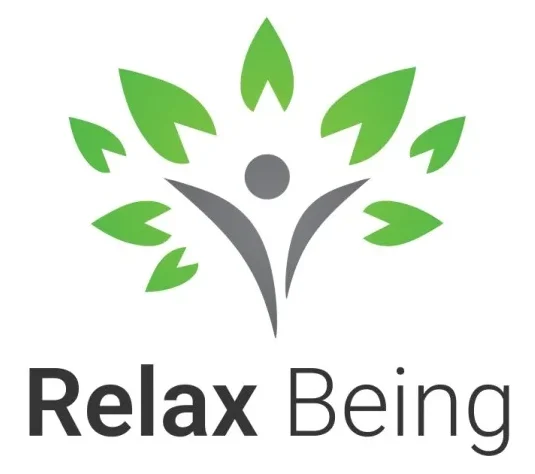Self-Care Activities for Mental Health
When I first started exploring self-care, I realized that small activities can bring a huge shift in my mental health and overall well-being. It does take effort and dedication, but with the right support, maintaining a healthy balance feels less overwhelming. A thoughtful combination of daily habits makes the difference that ultimately shapes how we feel.
For me, simply taking care of the basics like sleep, movement, and mindful breaks felt like the right step toward making a good routine for ourselves. By staying consistent, these small habits became a natural part of life, and though it’s a big task at times, it can be deeply rewarding.
What matters is making sure we give ourselves patience and compassion, because self-care is always worth the overall growth it brings. When we learn to make that difference, the support we build from within through intentional self-care activities for mental and emotional strength leads to better health, reminding us that taking gentle steps in care of ourselves is about maintaining what keeps us truly healthy.
Finding the right combination is essential for lasting well-being, and ultimately it’s about making sure we keep staying committed with effort, dedication, and a clear understanding that self-care becomes part of who we are.
The Impact of Self-Care on Mental Health
From my own experience, I have seen how self-care plays an integral role in supporting mental health. When people decide to adopt simple yet healthy habits such as yoga, meditation, or just the right amount of rest, it can reduce stress, ease anxiety, and even soften the weight of depression.
These practices are not only widely known but also shown to bring real benefits for the mind and body. What feels difficult at first becomes enjoyable once you incorporate it into daily life, and the results are evident you feel good, more balanced, and more connected with yourself.
I believe that taking care of mental well-being is not just something optional but an important part of keeping stability in all areas of life. The dedication to regular practices that engage both the form and total care of the self can help those who struggle and improve their overall state.
When you make time to engage in self-care, you are not only taking care of your own mental health, but also creating a part of life that helps you build resilience. It becomes evident that incorporate practices which improve balance can be enjoyable, meaningful, and deeply rewarding.
Self-Care Activities for Mental Health
From my own journey, I’ve learned that there, are, several, self-care, activities, you, can, do, to, promote, mental, health, and even small actions like mindful breathing or writing down thoughts can make daily life feel lighter.
Spend time outdoors
Spending time outside through simple walks or other outdoor activities creates a natural way to restore balance in life. When you step into nature, the mix of fresh air, warm sunlight, and gentle nature sounds can bring a soothing sense of peacefulness. For me, even a short gardening session or quiet moment of bird watching works as a mood reset, giving space for relaxation and a refreshing break from daily stress.
These little rituals help me reconnect with the environment and notice the small joys hidden in the scenery, making my mind feel lighter and calmer.This kind of activity is more than just exercise or physical activity it is a complete sensory experience of self-care.
The movement of the body, the exposure to greenery, and the chance to practice mindfulness all nurture mental health and promote stress relief. I’ve often felt a wave of calming tranquility while soaking up vitamin D, which boosts both energy and well-being. Each step outdoors builds a deeper connection with the world, leaving behind a spark of happiness and the feeling of gentle rejuvenation that stays with me long after returning home
Practice mindfulness meditation
When I first started meditation, I realized it was less about trying to stop my thoughts and more about learning how to practice gentle mindfulness. It taught me to become more aware of my feelings and how to respond with a positive attitude instead of reacting in frustration.
Over time, this simple awareness helped me manage my mental health by shifting my focus toward what truly mattered. By giving my full attention to each breath, I noticed my concentration improved and I felt a deeper sense of calm in my daily life.
What makes mindfulness powerful is the presence it builds through steady observation and a nonjudgmental reflection of emotions. This practice led me to stronger self-awareness, reducing stress and allowing space for real relaxation and clarity of the mind.
Each moment became a chance for insight and new perception, creating a richer experience of life. For me, even five minutes a day felt like pressing a reset button, helping me step back, breathe, and connect with myself more deeply.
Connect with others through social activities
Sometimes the simplest step toward better mental health is picking up the phone and making a call. A short conversation or friendly chat can open the door to meaningful communication. Whether it’s a casual meeting, a planned meetup, or sharing a coffee and a warm cup of your favorite beverage, these moments of socializing can create a positive ripple in your day.
I remember attending a small gathering where even an informal event felt special, and later, joining a virtual event reminded me that an online event can also spark genuine connecting and joyful interaction with people and individuals I wouldn’t otherwise meet.
Through these experiences, I realized how much participants in any space can reduce, lower, and even lessen heavy feelings and overwhelming emotions like loneliness, isolation, solitude, or seclusion. Genuine companionship leads to a sense of community, stronger friendship, and emotional support.
Every small act of engagement, whether in networking, participation, or simple connection, reminds us that social activity nourishes relationship, strengthens human contact, and nurtures our interpersonal bonding in ways that self-care truly thrives on.
Exercise regularly
In my own journey, I discovered that exercise is more than just a way to build fitness—it became a natural form of treatment for depression and anxiety. Engaging in physical activity such as aerobic workouts or strength training not only gave me stress relief but also helped balance hormones like serotonin, dopamine, and cortisol, which play a major role in mental health.
The surge of endorphins improved my mood, boosted energy levels, and added a sense of well-being to my lifestyle. Over time, I noticed how this psychological and emotional shift built resilience, making me stronger both in body and mind.
The most effective changes came through consistency. Adding exercise to my daily routine improved my sleep, supported my immune system, and increased my stamina, endurance, and overall performance. Beyond the health benefits, I felt a new sense of vitality, motivation, and wellness that touched every area of life. Whether it was a brisk walk, a cardio session to improve cardiovascular strength, or mindful stretching, staying active turned into a powerful tool for balance and healing.
The metabolic boost and long-term health benefits continue to remind me how staying regular with movement is a key to emotional strength and lasting well-being.
Spend time with animals
Spending time with animals creates a natural sense of companionship that often feels deeper than words. Simple acts like petting a cat or playing with a dog can reduce stress and anxiety levels, while giving you moments of pure relaxation.
This gentle interaction builds bonding and offers emotional support, a kind of silent comfort that lifts your mood and enhances your well-being. From my own experience, sitting with a dog after a long day felt like a quiet form of therapy, where serotonin and oxytocin worked together to bring back a sense of happiness and balance to my mental health.
The affection, care, and friendship that come from animals carry an unmatched sense of loyalty and trust, reminding us how powerful empathy can be. Their presence has a soothing effect, creating a connection that feels both healing and real.
Sharing this positive experience encourages mindful engagement and allows us to nurture not only them but also ourselves. The small moments of joy, the sense of calmness, and the quiet reminders of unconditional love make animals an irreplaceable part of emotional self-care.
Things you can do to feel calm, relaxed
In my own journey, I’ve learned that ups and downs are part of daily life, and sometimes it feels difficult to deal with everything at once. When I was in recovery from addiction, I realized that my mental health needed gentle care, especially when battling heavy feelings like guilt, shame, sadness, or even isolation and anger. What helped me most was using small coping tools and meaningful self-care activities to lower stress and create moments of peace.
Simple steps like journaling, breathing exercises, or even listening to calming music reminded me that a condition does not define the quality of life, and that balance can always be restored through daily self-care practices.
Sit outside
Spending quiet time in nature can be a simple yet powerful way to support your mental health, especially when dealing with stress, anxiety, or even mild depression. When I started sitting in green spaces for just 10-20 minutes, I noticed my mood improved, my focus sharpened, and my racing thoughts slowed down. Science shows that exposure to sunlight and fresh air can lower cortisol (the stress hormone) and boost serotonin, helping the mind to rest and recharge.
Even dedicating around two hours a week to sitting outside and fully using your senses listening to birds, feeling the breeze, or noticing the colors of trees offers real benefits by balancing brain chemistry. The key is not only being present but also engaging fully with your surroundings, which makes this self-care practice more grounding and restorative.
Practice mindfulness
One of the most powerful ways to care for your mental health is to practice mindfulness, which means training your attention to stay in the present moment instead of being carried away by worries. Personally, I have found that simple breathing exercises or a gentle body scan help me reconnect with my senses, notice my surroundings, and feel small sensations in the body that are often overlooked during daily self-care activities. Even while eating, you can pause to acknowledge textures, observe flavors, and notice thoughts and feelings without judgment, letting them flow as passing mental events.
Over time, this steady focus helps reduce stress, support emotional regulation, and improve overall well-being. I like to engage with mindfulness in small moments walking, listening, or working and slowly integrate it into my life by reminding myself to return gently to awareness whenever my mind wanders, which continues to support and strengthen balance in everyday living.
Things you can do to move your body
From my own experience, adding physical activity to the day can transform how we handle stress and bring more balance to life. Simple movement like dancing in the living room or gentle stretching helps to release pent-up feelings and create a positive shift in mood.
Many people I’ve met find that when they use exercise whether through different types like walking, yoga, or even light jogging it allows them to cope better with daily challenges and feel more calm and centered. There is a real sense of peace that comes when the body gains fresh energy, and even small steps in moving regularly can relieve difficult symptoms connected to mental health conditions such as depression or anxiety.
Take a walk
For me, simply taking a walk has always been a surprisingly powerful tool for improving my mental health it works like a gentle reset button, reducing both stress and anxiety while naturally boosting my mood. I’ve noticed how walking regularly not only enhances cognitive function but also releases feel good chemicals like endorphins, neurotransmitters such as serotonin and dopamine, which together promote a sense of happiness and contentment.
My personal aim is to stay committed to consistent walks of about 20-30 minutes, ideally outdoors where nature works its quiet magic to calm the brain’s centers and gently increase mental alertness.
Work out
When I decided to start taking care of my mental health, I learned how powerful regular exercise can be for reducing stress and anxiety while also improving sleep and self-esteem. Simple movements like walking, running, or even dancing helped me in releasing feel-good hormones that naturally lifted my mood, and over time, I noticed these routines worked as one of the most effective treatments for depression and other conditions.
The best part was that I could choose an activity I truly enjoy, start slowly, and even consider exercising with others, which made it easier to increase social connection by joining team sports or just spending time moving together. These little steps reminded me that working out is not just about the body it’s about strengthening the mind too.
Jump rope
I have found that even a regular jump rope routine can feel like a moving meditation, where the rhythmic sound of the rope and steady pace create a meditative flow similar to the nature of deep breathing.
Each session not only supports in releasing mood-boosting endorphins but also works in reducing stress, alleviate symptoms of anxiety and depression, and promote a sense of accomplishment and confidence. What surprised me most was how this simple act of jumping became a tool for helping calm the mind, improving focus, and building mental clarity.
The intense movements, though physically required, actually enhance overall well-being by turning effort into energy, leaving me with a renewed lightness that lingers far beyond the workout.


